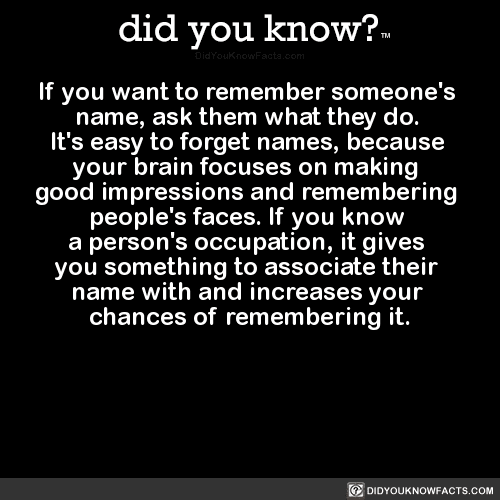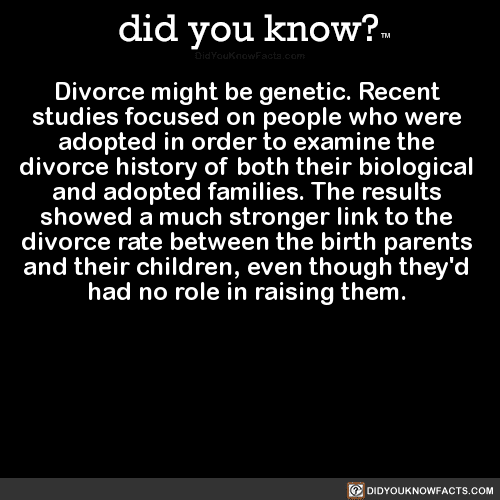I think being a psychologist would be very fascinating. You have unique access to the human mind, and at least some of what makes us tick, and that certainly has the possibility to be endlessly fascinating.
And, if you realize the person sitting across from you is dangerous and sick, more than a little bit freaky.
A moment these 15 psychologists remember with great clarity.
15. A very normal looking person.
When i was a student we had an interview with a lady that killed her baby child with a handgun because it cried so much that she couldn’t take it. At first we weren’t told that she was a psychopath and we were just told to listen to her side of the story. She was reading us from her journal that she made while she was in the institution. Not once did she mentioned that she was sad that her baby died, or how what she did was bad. She was just reading angry toughts about her husband that left her and turned her in the police about what she did. She was justifying the killing because the baby was so unbearable and once she mentioned that she was angry and mad that her husband did not believe her that she didn’t have any other choice but to kill the baby. She was very smart and well spoken and the whole time she was speaking she was trying to make us feel sorry for her for beeing locked up. We later learned that sometimes she was lying about not killing her baby and other times just brag about it, depending on who she was speaking with. Very normal looking person and very good speaker.
Edit : Wow, was not expecting this much upvotes. So to answer some of your questions. I am not from the US and I don’t think her name will matter to any of you. She was not schizophrenic nor had postpartum psychosis (if she did she would have felt any kind of remorse about what she did, which she did not) When I said normal person I ment it in a way that if I was talking to her in any other situation but this (in a mental institution) I would have no idea that she is a psychopat. She killed her baby only for one simple reason, at the moment it just wouldn’t stop crying. She didn’t try to hide it or anything, at first she lied to her husnand that it was by accident but than she admitted.
14. They only think about themselves.
Current psychologist working in a prison here
I’ve worked with three individuals I dare say would have met the criteria for anti social personality disorder within the last 2 weeks. One commonality is that they use behaviours as tools to benefit only themselves. Self harm not because they wish to hurt themselves but to use it as a tool to lure staff into the cell to incite violence/gain extra medication/be sent to the SHU which comes with a status.
13. No trust.
Not a psych but I was in the room where my mum was being evaluated.
Well I wasn’t in the room, it was like a police interrogation room with the one way glass. I was there because they needed to interview me for an outsiders perspective. Anyways, my mum got arrested on suspicion to commit a violent crime. To set the scene, she was handcuffed to a table and she was pissed. She’s always had volatile anger issues due to heavy drug and alcohol use. She was being talked to, questioned, all this other stuff, I was there for about 3 hours. She kept running this lady in circles to divert her from the actual problem. She was insanely calm answering questions about various things that would scare a normal person. She barely showed empathy for anything and it was terrifying for me to watch. I knew she wasn’t right in the head anyways, she was abusive to both my brother and I. But seeing how she handled the situation at hand, I’m glad I got out of there or it would’ve gotten much worse.
I haven’t talked to her in about four years but she’s tried to get in contact. I cant trust her and don’t think I ever will again.
12. You feel it in your gut.
You feel it in your gut first. Using a validated measure, and constructing a thorough case history to discuss in supervision – this is how you test your gut feeling. But you feel it often quite quickly.
It tends to begin with just a sense that something is “off”. When you’re doing therapy with someone, we tend to build up quite a strong rapport with people. So there’s lots of micromimicry going on, and you start to “tune in” quite deeply to unconscious body language. When you’re in this state, sometimes you just start to feel very uneasy and you can’t articulate verbally exactly why yet. This is often because of subtle micro expressions (super fast flashes of emotion, lasting fractions of a second) that we perceive, but don’t consciously register. You see flashes of contempt-related emotions and “burglar smiles” – basically emotions related to dominance and deception.
The next thing you’ll notice is a lot of use of projection going on. This starts quite quickly (usually in an assessment session – I mean as an aside, being assessed by someone else can feel quite threatening to anyone’s self image, let alone a psychopath’s). Quite predictably there will be status challenges – asking you about your credentials, your experience etc, and then often some put-downs and digs with plausible deniability (eg. joking that all psychologists are mad themselves), or just turning the tables by asking who’s the maddest person you’ve ever treated. You start to feel on the back foot and like you’re now being assessed by them.
As time continues, they will attribute a lot of their own emotions to you as the projection deepens. Eg commenting that you look sad, asking if you’re ok, or conversely asking why you got angry just then. As time passes their affect turns from microexpressions to more overt dominance displays (leaning back, smirking, getting up and striding around etc). By this point your initial gut feeling is getting more supportive evidence and it’s time to bust out the validated measures.
The biggest sign of all is a general unwillingness to show any vulnerability at all, or to be in a one-down position. The engagement will be superficial – often “pally” or “matey”, with lots of “banter” and joking, always flying close to the wind of outright mockery and contempt. They will start subtly and increasingly become overt in their need to control and dominate the therapy sessions. If the therapist maintains an aloof control, the ante may keep being raised and even end up with overt intimidation of the therapist.
11. We make this world our hell.
This thread is interesting so I thought I’d contribute.
I’m not a psychologist, I’m a criminologist. Obviously it’s not the same sort of thing and I’ve never been in a clinical situation, but you might be interested in some related experiences. Note here that I’m going to be very careful with my language in order to maintain professional integrity; apologies for the stilted language.
I’ve been to a couple of prisons for academic stuff and work. These are not actually all that interesting, because I knew what the people in there were for and it wasn’t as if I was surprised that some of them were psychopathic. But those would be my first experiences.
But my area of professional and academic expertise is child sexual victimisation. I’ve very occasionally seen psychopaths in the making, as it were. Victims who have been so terribly victimised and neglected that you can see them setting out on the path of an abuser or other type of criminal. It wasn’t my responsibility to intervene (and I don’t have any expertise in that area of things), but knowing the case histories it was sad to watch. I’ve talked to a few police officers, social workers and so forth about a few of them. It’s like watching a large tree toppling in slow motion–you know it’s going to crash into the ground, but there’s not much you can do about it.
I have met (in a professional capacity but in a roundabout sort of way as it’s not the usual stuff I do) the relative of a serial killer who was also once a suspect. I came away from that meeting knowing with certainty that they were the guiding hand behind the crimes of the serial killer. The police were pretty sure as well, but there was simply no evidence. Both are now deceased, and frankly I’m not going to shed any tears for them. There was definitely familial abuse there as well.
I have encountered some persons, a very small number, that were psychopathic and quite smart. This was through working within my field. One of these persons indicated that they were abusive towards animals in lieu of, or to work up to, children. I’m not going to repeat it, but what they said was something that haunts me to this day and I haven’t even been able to repeat to my closest friends or even my psychologist.
Another one of these persons escaped justice. A very, very smart person. It was no-one’s fault; the investigation was excellent, the police were great, everything lined up and a lot of justice was achieved. That person, however, escaped justice by being very, very smart. They were responsible for very serious, sustained offending and would definitely be classed as a psychopath.
Last, I met a friend of a person who used to be within my social circle who was also victimised in their childhood. I have a suspicion, without any solid evidence, that they have committed serious crimes. They hold down a professional job and are very successful in life. From the standpoint of someone who cannot diagnose psychopathy and was not treating or analysing them, but has studied it, I would say that they lack any real empathy or conscience. A lot of their emotions (but not all) seemed to me to be a simulated and conscious act.
The abuse they suffered was of the worst possible kind. As a result they were wary of most men, but warmed up to me a little due to the work I do.
Abuse and neglect during the formative years seem to be a very common thread for many criminals and psychopaths. That said, I dare say there are some who are just wrong in the head, but I, personally, haven’t encountered any of that sort.
I’ll end this already-too-long post with a word of caution to everyone reading. It’s very easy to be horrified of the actions of psychopaths and criminals. It’s easy to be fascinated by their psychology. But these are people, just like we are. Most of the time, their actions can be traced back to what happened to them, how they interpreted it, how they learned from their life experiences.
There but for the lottery of birth. There aren’t any evil monsters living under bridges or in forests; it’s just us. We bear responsibility for the evil of psychopaths as a society, as communities and nations. We create the conditions for crime and evil. We are the monsters, and we create the monsters. As Oscar Wilde put it, we are each our own devil, and we make this world our hell.
10. They’re not always violent.
Everybody always thinks of psychopaths as some clever, devious, silence of the lambs types but what about the ones that are thick as two short planks? Plenty of them getting locked up in prisons every day. It’s less “oh no my primal fear receptors” and more “oh no, I have to listen to Barry the boring cunt wax lyrical about himself for another hour”.
9. Nothing about that is okay.
When telling that “he kept thinking about how killing people would be more fun than “lame” animals” (stray cats and dogs and everything else he could catch). Only 11 years old.
8. Not too serious.
The PCL-SV
That and when he was describing how he murdered two kids. He had no affect. Didn’t name them. Justified his actions as not serious etc. Took a few sessions to acknowledge the murder of the second child. He was in denial, assuming I wouldn’t like him if I knew he killed the other one too.
7. Those poor animals.
Not a psychologist, but a nurse who sees way too many psych cases. One time I had a pt who was brought in after trying to break into a families house while they were home. He was on my telemetry unit because his electrolytes were outta whack and he was acting like he didn’t remember trying to bust into an entire families house with them home.
He was getting antsy, but the hospital I worked at had a stupid fall-risk policy that kept patients in bed, even if they were young/healthy/capable of being responsible for their fall. Mental health patients like to pace, especially when they start to feel like they’re using it. So, anyway, I’m trying to keep dude in bed because if his feet touched the floor a loud alarm would go off, pushing his crazy ass closer to the edge. So, I’m in there trying to talk to him and deescalate. We’re talking and he tells me he is a bad person, that his cat was mutilated and his sister asked what happened to it and he told her the dog did it. But, he told me that his secret is that he did it. He killed the cat so bad that it looked like a dog ripped it to pieces! He also shared with me that he knew what he was doing when he tried breaking into the family’s home, and that he wants to hurt people. Of course, I shared this info with the hospitalist and the psychologist and, naturally, he was discharged free and clear the next day. No follow up with the law or outpatient psych. Gotta love it.
6. Watch out for the face.
Often there is a particular face they make when they are relating a story, usually about how clever they are. One of the Ted talks on how to spot a liar calls it ‘duping delight’. Sometimes they can’t contain their rage and you see them switch.
Edit: last sentence is a personal observation not related to the ted talk
Edit: to add link. We had to watch it for our criminology class. As other posters have noted there is no evidence based way to spot a liar. I just found the duping delight fascinating. I also see it in the faces of my young niece and nephew at times!
5. Things that make you go cold.
Clinical psychologist here.
At first I didn’t know. If anything, given the context he was more put together than most of my patients.
The subject of his criminal past came up. I only knew he had served prison time some years before, not what he was in for. I had met with him a month or two when this came up.
Turns out it was two separate sentences served. Both were for rape. In both cases he was the exact thing we are afraid of: a guy lurking in a dark alley jumping a drunk girl.
He told me about these things as if he was talking about the weather. When it dawned on me that he expressed no remorse or guilt whatsoever I got the same cold, gut-wrenching kind of primal fear you feel when you’re out for a walk and almost step on snake.
4. Only a matter of time.
My mum worked with a boy (12-13 at the time) who had killed animals, he’d raped a sheep then cut it’s throat, he’d molested his younger brother. He was big for his age and wouldn’t be allowed to be alone with female staff because he would always try to manipulate them and test his strength against them in ‘subtle’ ways – ie, he’d try to hug them but squeeze to see if they were strong enough to get out of it.
They would often find drawings in his room of women tied up and mutilated. He wasn’t allowed human-like toys anymore because he’d always destroy them, hang them, tie them up.
The staff have all said it’s only a matter of time before he actually kills a human and at present there’s nothing they can do about it because when he hits 16 he’ll no longer be in their care.
They had a certain degree of sympathy for him due to his upbringing. His mother was a junkie and would often sell him and his brother to paedophiles…they’d pick the boys up in a car, take them away, abuse them and then bring them back to her.
Disgusting!
3. Hard to make a case.
Interviewing in jail. I was helping him with his application for parole.
What do I do? I listen and emphasize. I ask why does he act the way he does and why did he do what he did. Turns out while he’s remorseful but he just simply doesn’t get the severity of it. He wasn’t intellectually disabled or anything, which is what I assumed – though he may be on the spectrum (I didn’t test him for it). He was ultimately just uneducated and naive. Had a very strange upbringing. I suggested he do schema therapy to address his issues relating to violence against those he sees weaker than himself.
Overall he was on the surface a nice kind guy. Mid 30s. Loved to garden. Very thoughtful for his friends inside jail etc. Pleasant person. Just totally had a different side to him which he’s kept bottled up. So while he’s a psychopath, he’s not really aware of it and thus doesn’t really have the confidence to use it maliciously within jail. However he did have an opportunity while in the community, against two children. Which he saw as okay and justified.
I quizzed him to why he’d never hurt his partner. He said well it’s a woman, you don’t hit women. I said what about children? He would say he didn’t think about that in that context.
It’s fascinating.
So when I had to build a case to support his release… It was very very hard.
2. Completely unnerving.
I am a mental health professional working in corrections (max security facility). In my experience, psychopaths will have this “predatory” stare, especially when they are trying to manipulate you. It is completely unnerving and hard to describe to someone unfamiliar with this population. They also tend to be narcissistic and overly charming, making a point to be overly friendly with you.
1. Missing emotion.
The eyes when they believe they’re supposed to put on an emotion. You have to understand. It’s going ouch when you bang your funny bone, even though it doesn’t hurt, because all your life, people have cried out in pain when they’ve banged their elbow. You meet enough people like that and you find yourself hating any obligational situation in your life when you have to lie, like being asked how you are and saying good when you’re not, simply because all you can associate it with, is them.
Okay, so on those days, I wouldn’t be too happy with my chosen line of work, I guess.
Have you ever realized you knew someone crazy? Dangerous? Tell us about it in the comments!
The post Psychologists Share the Moment They Realized Their Patient Was a Psychopath appeared first on UberFacts.






























 (@MantoNtusi)
(@MantoNtusi)  (@bravogirl9)
(@bravogirl9) 